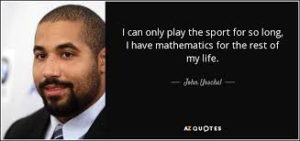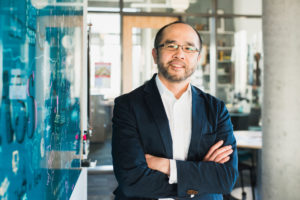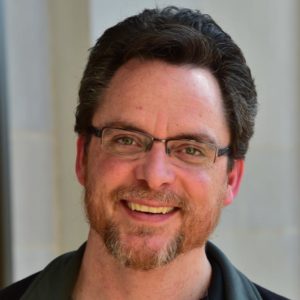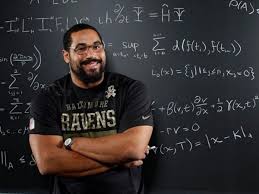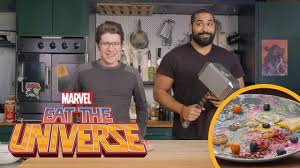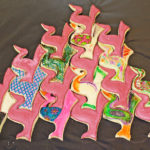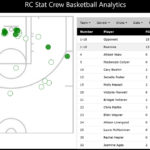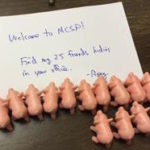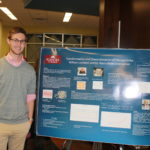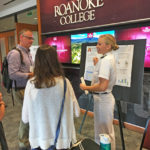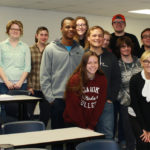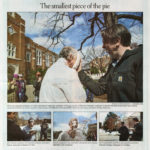A conjunction of events provoked me to think about the role of heroes in our lives. Spoiler alert: in what follows there are no Marvel* heroes or even a Marvelous Mrs. Maisel.
To me, an interesting article is a great gift. RC History professor John Selby came across two items in quick succession that he thought I would want to see (he was right). They were about mathematics professors Francis Su and Tim Chartier. The same day a colleague invited me to VMI to chat with John Urschel. All three are worthy of being called heroes.
For young people, heroes are magical and perfect beings. As experience adds shading to our initial black-and-white view of the world, we risk growing cynical and closing the door to potential heroes. If “hero” means someone who inspires us, adding a little magic to the daily grind, we can draw important psychic benefits from heroes while acknowledging that they are imperfect humans like us.
Francis Su is a mathematics professor at Harvey Mudd College in California, where my son graduated. He is kind and generous, taking time to chat when we visited Mudd and when we run into each other at mathematics meetings. Francis was in the news as the author of a moving ode to mathematics, Mathematics for Human Flourishing. Francis articulates, in a style best described as lyrical, the benefits of seeing the world mathematically. If this strikes you as a narrow world view, get the book and discover how your best thinking is more mathematical than you realize.
Tim Chartier is a computer science and mathematics professor at Davidson College. He supervises Cats Stats, a student group that provides analytics to athletic teams at Davidson. His appearance in the news was through the sports-oriented Only a Game podcast. Tim is quick to introduce colleagues to each other when he sees connections they could explore. Afterwards, he will send a quick email asking, “Was that helpful?” It always is. If you are wondering how Cats Stats relates to Roanoke College’s Stat Crew, I stole the idea directly from Tim, and continue to get new (and very helpful) ideas from him.
John Urschel is a Ph.D. candidate in mathematics at MIT, scheduled to graduate in May. This is impressive, but his fame comes from his previous job as offensive lineman for the NFL’s Baltimore Ravens. John is thoughtful and unassuming, and a very strong mathematician. When one of the VMI people referred to some software he had not heard about, John quickly stepped in and asked for an explanation of the software. This was not a rude interruption, it was gathering information to fully participate in the conversation. He is getting a lot of publicity, but John says his immediate goal is to establish himself as a competent mathematician. His list of publications says he is already there.
When I was thinking about writing about John, I came up with the opening line, “In the end, I decided to not ask him to autograph my copy of his book.” In the magical world of childhood heroes, I would cherish that autograph. However, it felt like a more appropriate response to a high-level conversation about mathematics and life to shake his hand and thank him for his time.
So, what is a hero? Here are three people who are likable and inspirational: Francis and his love of mathematics, Tim and his amazing work with his students, and John with his work ethic and intelligence. They all make me a little more excited about the life I have. And that’s pretty magical.
(* Note: This is not exactly true. John Urschel has been working with Marvel on a video series “Marvel University” on Marvel’s YouTube channel.)
